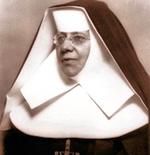Fathers of the Church
Fragments
by Serapion, Bishop of Antioch in 190-211 A.D. | translated by Rev. B. P. Pratten
I. FROM THE EPISTLE TO CARICUS AND PONTICUS.
THAT ye may see also that the proceedings of this lying confederacy, to which is given the name of New Prophecy, is abominated among the whole brotherhood throughout the world, I have sent you letters of the most blessed Claudius Apollinarius, who was made bishop of Hierapolis in Asia.
II. FROM THE BOOK CONCERNING THE GOSPEL OF PETER.
For we, brethren, receive both Peter and the rest of the apostles as Christ Himself. But those writings which are falsely inscribed with their name, we as experienced persons reject, knowing that no such writings have been handed down to us. When, indeed, I came to see you, I supposed that all were in accord with the orthodox faith; and, although I had not read through the Gospel inscribed with the name of Peter which was brought forward by them, I said: If this is the only thing which threatens to produce ill-feeling among you, let it be read. But, now that I have learnt from what has been told me that their mind was secretly cherishing some heresy, I will make all haste to come to you again. Expect me therefore, brethren, shortly. Moreover, brethren, we, having discovered to what kind of heresy Marcion adhered, and seen how he contradicted himself, not understanding of what he was speaking, as you will gather from what has been written to you—for, having borrowed this said Gospel from those who were familiar with it from constant perusal, namely from the successors of those who were his leaders in the heresy, whom we call Docetae (for most of the opinions held by him are derived from their teaching), we were able to read it through; and while we found most of its contents to agree with the orthodox account of the Saviour, we found some things inconsistent with that, and these we have set down below for your inspection.
Taken from "The Early Church Fathers and Other Works" originally published by Wm. B. Eerdmans Pub. Co. in English in Edinburgh, Scotland, beginning in 1867. (ANF 8, Roberts and Donaldson). The digital version is by The Electronic Bible Society, P.O. Box 701356, Dallas, TX 75370, 214-407-WORD.



